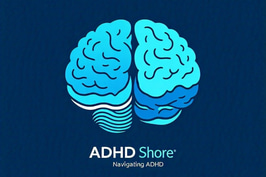Understanding ADHD Medication: Benefits, Risks, and Alternatives
1/11/20257 min read


Introduction to ADHD and Its Treatment
Attention Deficit Hyperactivity Disorder (ADHD) is a neurodevelopmental condition characterized by a persistent pattern of inattention, hyperactivity, and impulsivity. These symptoms can significantly interfere with an individual's daily functioning and quality of life. Common signs include difficulty sustaining attention, excessive fidgeting, and an inability to wait for one’s turn, which often manifests in both children and adults. The prevalence of ADHD varies, yet it affects millions globally, necessitating a deeper understanding of its implications and management strategies.
The importance of effective treatment for ADHD cannot be overstated. Individuals diagnosed with this disorder may struggle academically, socially, and occupationally if left untreated. Therefore, timely and suitable intervention is essential. Treatment approaches typically involve behavioral therapy, educational support, and, notably, medication. Medications prescribed for ADHD aim to alleviate the core symptoms, enhancing focus, self-control, and overall functioning.
Medication is often considered a cornerstone of ADHD treatment, particularly in moderate to severe cases. Stimulant medications, such as methylphenidate and amphetamines, are widely used due to their efficacy in increasing attention span and decreasing impulsivity and hyperactivity. Non-stimulant options also exist, offering alternative choices for individuals who may not respond well to stimulants or experience undesirable side effects. Each patient's unique profile will dictate the most beneficial approach, emphasizing the need for personalized treatment plans.
Hello, managing ADHD effectively requires a comprehensive understanding of both medical and non-medical options. Medication may provide significant benefits, but it is essential to consider the associated risks and potential alternatives. Through this blog post, we aim to explore the various aspects surrounding ADHD treatment, particularly focusing on medication, to equip individuals with the knowledge needed to make informed decisions.
Types of ADHD Medications: Stimulants vs. Non-Stimulants
Attention Deficit Hyperactivity Disorder (ADHD) medications primarily fall into two categories: stimulants and non-stimulants. Each type has a distinct mechanism of action and specific indications for treatment, thus playing a crucial role in managing the symptoms of ADHD.
Stimulants are the most commonly prescribed medications for ADHD, and they include well-known drugs such as methylphenidate and amphetamines. These medications work by increasing the levels of certain neurotransmitters, primarily dopamine and norepinephrine, in the brain. This increase enhances focus, attention, and impulse control, leading to improved behavior in individuals affected by ADHD. Stimulants are often considered the first-line treatment due to their effectiveness, with many patients experiencing significant symptom relief within hours of dosing. However, their use does come with potential risks, including increased heart rate, anxiety, and, in some cases, addiction. Physicians typically weigh these risks against the benefits when prescribing stimulants.
Non-stimulant medications, such as atomoxetine and guanfacine, offer alternatives for individuals who may not tolerate stimulants well or who have contraindications to their use. Atomoxetine is a selective norepinephrine reuptake inhibitor (NRI) that increases norepinephrine levels in the brain, promoting better focus without the stimulant-related side effects. Guanfacine, on the other hand, works as an alpha-2 adrenergic agonist, which helps to regulate attention and behavior by affecting certain receptors in the brain. While non-stimulants may take longer to show effects compared to stimulants, they provide discrete options for managing ADHD symptoms, particularly in patients who may also struggle with anxiety or other comorbid conditions.
In conclusion, understanding the different types of ADHD medications, including stimulants and non-stimulants, is vital for patients and caregivers. The distinction between these categories aids in selecting the most appropriate treatment based on individual needs and medical history.
Benefits of ADHD Medication
ADHD medication has been a pivotal aspect of treatment for individuals diagnosed with Attention Deficit Hyperactivity Disorder (ADHD). One of the primary benefits is the significant improvement in attention span. Studies indicate that many individuals who start on stimulant medications, such as methylphenidate and amphetamines, notice enhanced concentration and focus shortly after beginning treatment. This increased attention allows individuals to engage more effectively in academic settings and daily tasks, promoting better productivity.
Another pronounced advantage of ADHD medication is the reduction of hyperactive and impulsive behaviors. Many patients report a marked decrease in fidgeting, excessive talking, and impulsive decision-making, which can hinder their social interactions and academic performance. For instance, a study published in the Journal of Child Psychology and Psychiatry highlighted that children on ADHD medication exhibited fewer behavioral disturbances in classroom settings, facilitating more structured learning environments.
Furthermore, medication can lead to enhancements in both academic performance and social functioning. Children who effectively manage their symptoms often experience improvements in grades and classroom participation. For adults, medication may lead to better job performance and interpersonal relationships. Real-world examples, such as testimonials from parents and educators, support these findings, demonstrating how treated individuals are more likely to excel academically and socially.
The overall quality of life for individuals with ADHD improves substantially when medication is administered appropriately. By mitigating symptoms, individuals often report feeling more in control, leading to higher self-esteem and reduced frustration levels. The cumulative effect of these benefits creates a more balanced and fulfilling life for those affected by ADHD. Overall, ADHD medication can represent a vital track toward effective management of symptoms, positively influencing various domains of an individual's life.
Potential Side Effects and Risks of ADHD Medication
Attention Deficit Hyperactivity Disorder (ADHD) medications, notably both stimulant and non-stimulant options, play a significant role in the management of symptoms. However, it is crucial to be aware of the potential side effects and associated risks of these medications. Stimulant medications, which are commonly prescribed, have been linked to a range of side effects including insomnia, appetite suppression, mood changes, and cardiovascular concerns. These side effects can vary in intensity among individuals, necessitating close monitoring during treatment.
One of the most frequently reported side effects of stimulant medications is insomnia. Patients may experience difficulty falling asleep or staying asleep, leading to overall fatigue and decreased functioning during the day. Another common side effect is appetite suppression, which can affect growth and development in children. Parents and caregivers should closely watch for changes in eating habits. Additionally, mood changes, such as increased irritability or anxiety, can also occur and warrant careful attention from healthcare providers and family members alike.
Cardiovascular concerns are another important consideration. Stimulant medications can lead to increased heart rate and blood pressure, which may pose risks for individuals with pre-existing heart conditions. Therefore, regular health check-ups and communication with healthcare professionals are essential to manage these potential risks effectively.
It is also vital to address the risks of misuse or dependency that may arise with stimulant medications. Due to their stimulant properties, there is a potential for these medications to be misused, particularly in adolescents and young adults. Appropriate prescribing practices, patient education, and monitoring are essential to mitigate these risks. Overall, while ADHD medications can offer significant benefits in managing symptoms, understanding and addressing their potential side effects is imperative for safe and effective treatment.
Non-Pharmaceutical Alternatives to ADHD Treatment
Attention-deficit/hyperactivity disorder (ADHD) can be managed through various non-pharmaceutical alternatives that offer different avenues for symptom management. Behavioral therapies are one effective option; these therapies focus on changing specific behaviors through techniques such as cognitive-behavioral therapy (CBT) and parent training. CBT, in particular, helps individuals develop coping strategies, improve time management skills, and enhance their organizational abilities, providing tools that aid in managing daily challenges associated with ADHD.
In addition to therapy, lifestyle changes play a critical role in managing ADHD symptoms. Implementing regular exercise has shown to improve focus, reduce impulsivity, and enhance mood among individuals with ADHD. Physical activity increases dopamine levels in the brain, which can help mitigate symptoms. Furthermore, dietary adjustments can also have a positive impact. A balanced diet rich in omega-3 fatty acids, protein, and micronutrients can support brain health and help regulate mood and attention levels.
Mindfulness practices, including meditation and yoga, also serve as valuable alternatives for managing ADHD. These practices promote greater self-awareness and enhance emotional regulation, which can be particularly beneficial for individuals struggling with impulsivity and restlessness. Incorporating mindfulness into daily routines can lead to improved concentration and reduced stress, contributing to overall well-being.
When considering these non-pharmaceutical alternatives, it is essential to assess their effectiveness individually. Many individuals find that integrating these strategies with medication creates a more comprehensive treatment approach. Collaboration among healthcare providers, patients, and families can optimize the effectiveness of these alternative therapies, ultimately leading to better management of ADHD symptoms.
Making Informed Decisions: What to Consider
When navigating the complex landscape of ADHD treatment options, it is crucial to approach the decision-making process thoughtfully and thoroughly. Individual assessment plays a fundamental role in determining the most appropriate course of action tailored to specific needs. This assessment should encompass a comprehensive evaluation of symptoms, strengths, and challenges faced by the individual, taking into account any co-existing conditions that may influence treatment effectiveness.
Personal values and beliefs significantly impact how individuals and families perceive ADHD and its treatments. It is essential to recognize that what works for one person may not be suitable for another, making it necessary to prioritize values such as lifestyle preferences, desired outcomes, and concerns regarding potential side effects of medication. Moreover, the involvement of family members can provide valuable support and insight, ensuring that treatment decisions align with the needs of the individual within the broader context of their home environment.
When considering whether to utilize medication or explore alternative treatments, it is imperative to weigh the benefits and risks associated with each option. Questions to ask healthcare professionals may include inquiries about the effectiveness of specific medications, potential side effects, and innovative non-pharmacological therapies such as behavioral interventions. Additionally, understanding the long-term implications of each treatment avenue will further inform the decision-making process.
Ultimately, making informed decisions about ADHD treatment requires a collaborative approach that considers the unique circumstances of the individual. Ensuring open communication with healthcare providers, actively involving family members, and carefully evaluating personal priorities will foster a holistic strategy for effectively managing ADHD symptoms. This thoughtful consideration promotes a deeper understanding and empowers individuals and their families to take charge of their treatment journey.
Conclusion: Finding the Right Approach for You
As we explore the complexities of Attention Deficit Hyperactivity Disorder (ADHD) and its treatment options, it becomes evident that the journey towards effective management is unique for each individual. The decision to pursue medication, therapy, or alternative interventions must be thoroughly evaluated based on a person's specific needs, preferences, and lifestyle. ADHD medications, while beneficial for many, do come with potential risks and side effects, making it crucial for individuals and their support networks to engage in informed discussions with healthcare professionals.
Throughout this blog post, we have examined the various types of medications available, detailing their potential benefits in enhancing focus, reducing impulsivity, and improving overall quality of life. However, the choice to use medication should not be taken lightly. It is equally important to consider non-pharmacological approaches, which can include behavioral therapies, lifestyle modifications, and holistic treatments. Such methods may complement or, in some cases, serve as alternatives to medication, particularly for those who are hesitant to use pharmaceutical options.
Ultimately, the management of ADHD requires a collaborative approach. Patients should prioritize open communication with their healthcare providers, discussing any concerns or preferences regarding treatment options. It is essential to remember that what works for one person may not work for another, and a treatment plan should be flexible and responsive to ongoing assessments of efficacy and side effects. By taking the time to explore all available options and fostering a partnership with healthcare professionals, individuals can find the best approach for their unique circumstances, leading to a more manageable and fulfilling life with ADHD.
